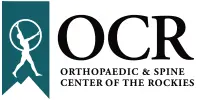It’s that time of year when families and friends are heading to the slopes to ski and snowboard. Every once in a while, someone comes home injured. Here are some common skiing and snowboarding injuries and how you can prevent them.
Common Injuries
Knee and Leg Injuries
When most skiers think of injuries, they often think of those that affect the knee. Things like ACL and meniscus tears are common for skiers. These kinds of injuries are typically caused by tumbling falls down the mountain. Because skis are attached to you, in a fall, if they get caught, you can easily have your leg twisted causing those kinds of tears. Fractures in the tibia, the large bone on the bottom half of your leg, are also common.
Shoulder, Wrist and Hand Injuries
More common in snowboarders are shoulder and wrist injuries. These can include breaks and sprains. When snowboarders experience a fall, they are likely going to try to catch themselves by putting their arms down to brace for impact. This can lead to broken collar bones, separated or dislocated shoulders, and broken wrists. Skiers, on the other hand, can experience “skiers thumb” which is what happens when they fall and their thumb gets caught in the pole and separates from the hand, causing torn ligaments.
Head, Neck and Back Injuries
Common amongst both skiers and snowboarders are head, neck, and back injuries. Injuries include whiplash, herniated disks, and concussions. These are also normally caused by falls down the hill.
Injury Prevention
It is important that if you are planning on skiing or snowboarding to make sure you are in the right shape to do so. A lot of injuries are avoidable by simply warming up, stretching, and conditioning before making the trip up the mountain. Additionally, know when you are exhausted. Many skiing and snowboarding injuries occur on the first run of the day, or the last run of the day.
Another key way to prevent skiing and snowboarding injuries is to have the proper equipment and to make sure that your equipment is properly adjusted. Wearing pads, wrist guards, and helmets can help reduce the severity of injury in the event of a fall and properly adjusted equipment can keep you from falling in the first place.
If you, unfortunately, experience a skiing or snowboarding injury this season, come to see our experts. To request an appointment, fill out our online appointment request form.
